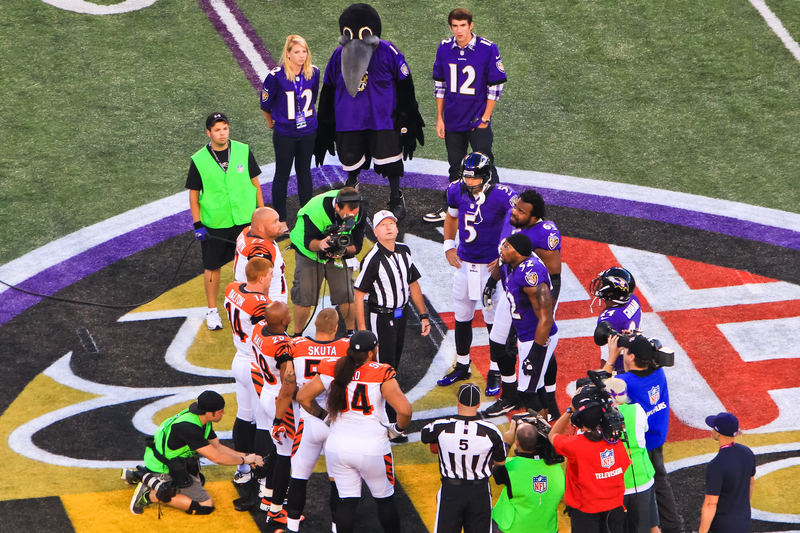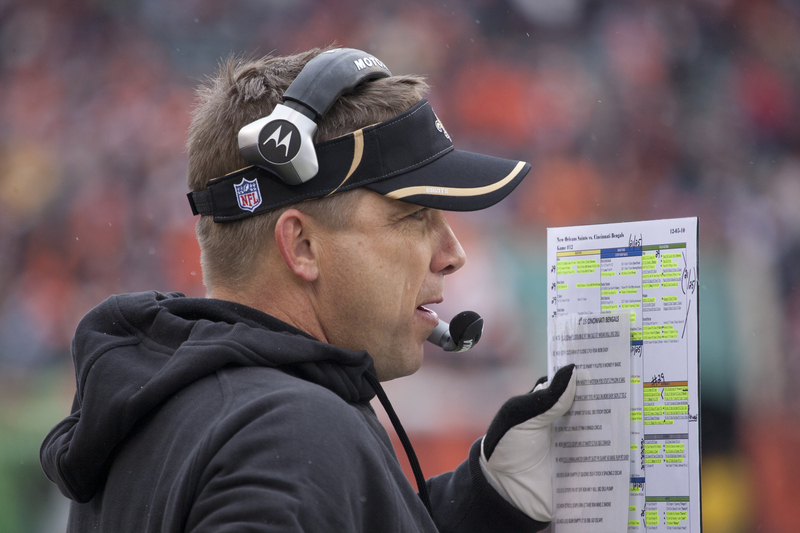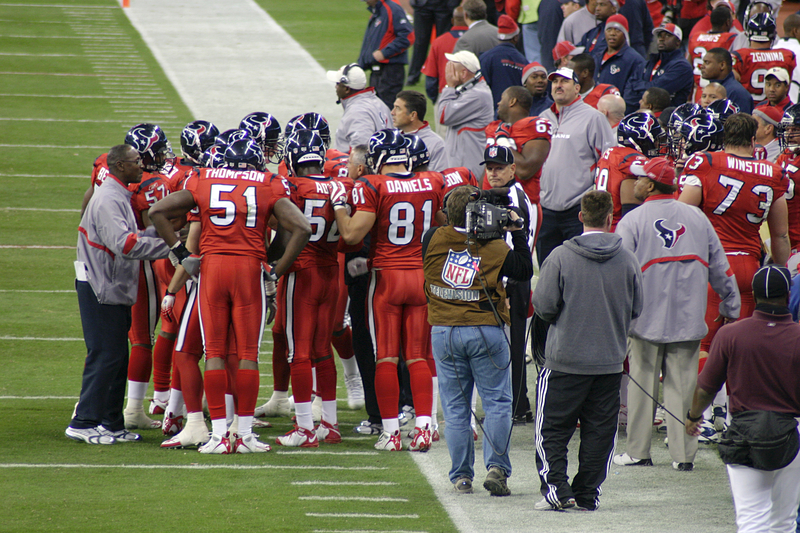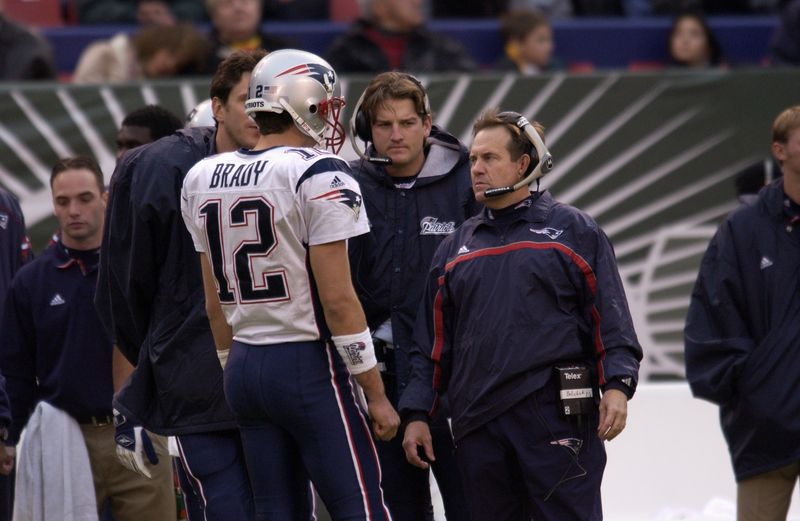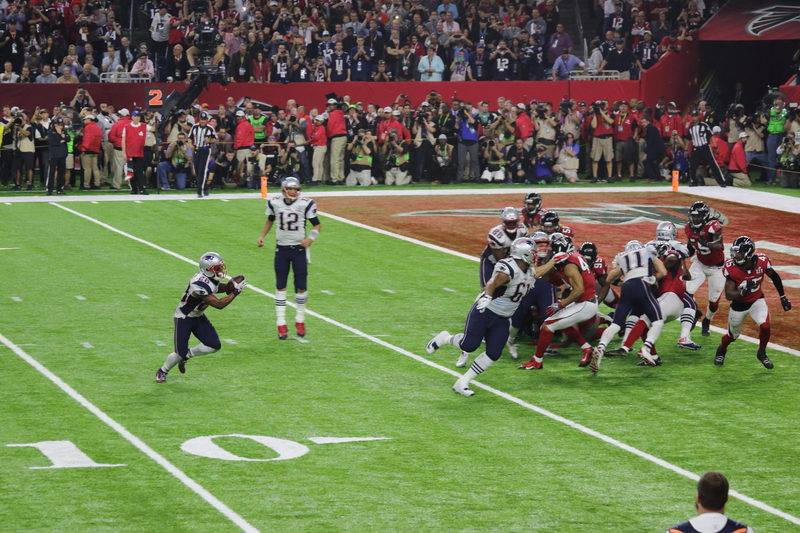Last updated on October 28th, 2023 at 08:50 am
At the beginning of every NFL game, both teams will send their team captains to the 50-yard line, where an umpire will explain the procedure to both teams and show them the coin they will use, clearly defining which side is the head and which side is tails. The umpire will then toss the coin in the air, and the winning team can decide whether to kick or receive the ball, defer their decision, or pick which goal they would rather defend.
One thing to remember during a coin toss is that if the winning team decides to receive the ball, the opposing team will receive the ball to start the second half. If the winning team of the coin flips elects to kick the ball, they will start the 3rd quarter receiving the ball after halftime.
What Team Calls the Coin Toss?
The visiting team captain is the one who calls either heads or tails before the referee flips the coin. The referee will show the captain both sides of the coin and wait to hear their answer before flipping the coin to see which side wins the coin toss.
Why Do Some Football Teams Defer the Coin Toss Win?
To defer a coin toss is when the winning team withholds the option of picking if they want to receive or kick the ball and gives that option to the opposing team. The winning team will then reserve the right to kick or receive the ball at the beginning of the second half, with most electing to receive the ball.
The idea is that possessions are king in a football game, and that possession comes in especially handy during the second half. Therefore, the more possession a team has, the higher their chances are of setting the tone for the second half. Since some teams elect to receive the ball in the second half, they can formulate a strategy, and after coming out of the locker room rested, they can come out execute with precision and catch the opposing team off guard.
The New England Patriots are notorious for deferring their coin toss, choosing to do so 90% of the time. Their strategy for deferring to receive the ball in the first quarter is two things. First, they want to have possession of the ball at the end of the first half and score. Next, they want to take that momentum of scoring at the end of the second quarter and score again on their next drive.
Does the Team That Wins the Coin Toss Usually Win the Game?
The initial coin toss at the beginning of a game doesn’t do much more than determining which team will get possession of the ball to begin a game. There is no evidence to suggest a team who wins that coin toss has any better chance of winning the game. Winning and electing to receive the ball could give a team a chance to set the tone for the game, but with four quarters to follow the kickoff, the game tone is bound to go back and forth.
Does the Coin Toss Matter More in Overtime?
However, a coin toss win during overtime becomes much more critical than during a regular four-quarter game. The NFL rules for the regular season overtime state that the game is over if the team that receives the ball first scores a touchdown on their first possession. This rule used to apply to the playoffs, but a recent rule change made it to where both sides get possession of the ball regardless.
However, one can argue that scoring first puts more pressure on the team, so winning the coin toss is important.
Conclusion: What is a Coin Toss in Football?
The coin toss in football is a moment at the start of the game to help determine possession. The away team decides on heads or tail; if they win, they get to decide whether to kick, receive the ball, which endzone to defend, or defer their decision. If they defer, the winning team is delaying their decision essentially until the second half, and the other team will decide whether to receive or kick the ball. Even though it does not directly affect who wins the game, NFL teams are precise in what decision they choose to make. A coach will often tell their captain what decision to make before they make their way onto the field.
Similar Posts:
How Does Overtime Work in College Football?
2 Point Conversion in Football
Unnecessary Roughness in Football
What Does NIL Mean in College Football?
How Long and Wide is a Football Field?
How Much Do College Football Coaches Make?
What is the Heisman Trophy in College Football?
What Does the SEC Mean in College Football?
Defensive Coordinator Football
What is a Wide Receiver in Football?
How Many Players are on a Football Team?
What is a Pick Six in Football?
Greg Kristan, owner of The Stadium Reviews, LLC and TM Blast, LLC, brings his extensive experience visiting over half of the MLB ballparks, along with numerous MLS, NHL, NBA, and NFL venues, to provide in-depth coverage on the bag policy, food options, and parking. He has also been interviewed about his experiences on several sports podcasts.

